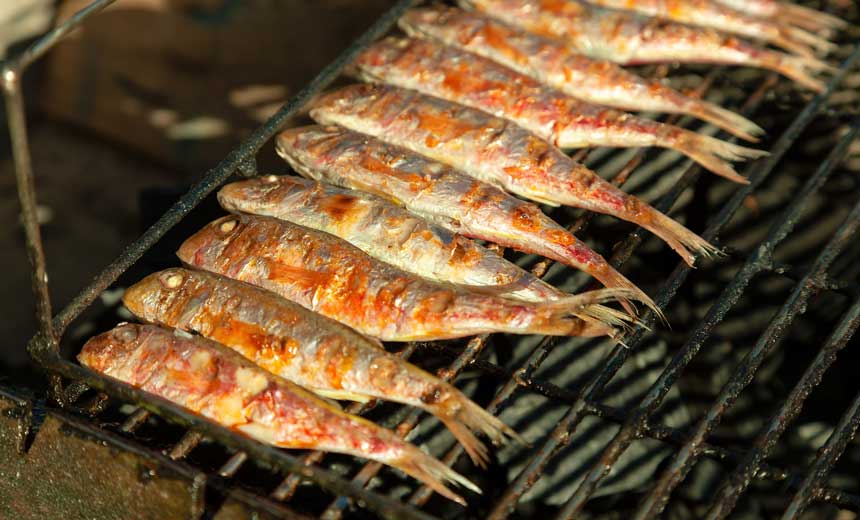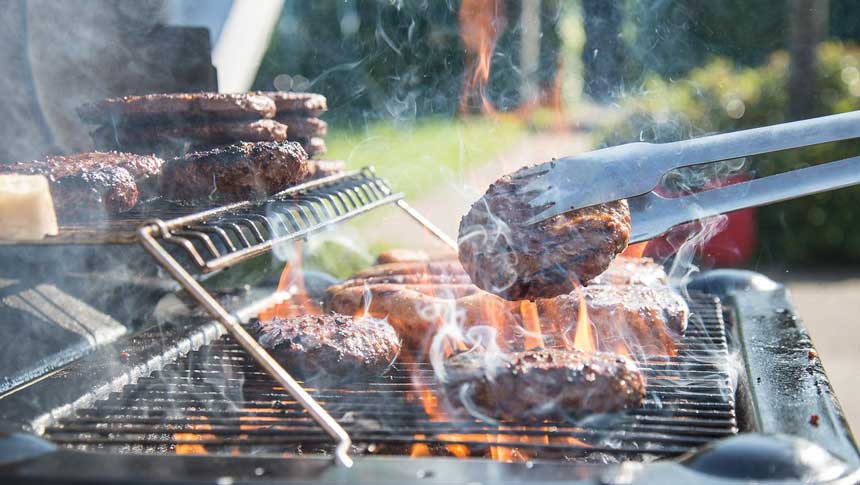It’s that time of year again when outdoor cooking becomes the main event. Whether you’re a pro at grilling or just starting, keeping your grill clean for optimum performance and safety, follow these simple steps to get your grill looking and cooking like new again!
What to Use to Clean a Grill?
To clean a grill effectively, you will need essential cleaning tools like soapy water, a sponge or scrub brush, and a wire brush.
Start by removing any grates or burners from the grill and placing them in your sink or bathtub.
Next, spray the entire surface of the grill with soapy water and use your sponge or scrub brush to remove any built-up grease or food particles.
Once your grill is thoroughly cleaned, it’s time to tackle those tough stains and stuck-on bits that may be more difficult to remove. For this step, you can use a wire brush to gently scrape away stubborn debris without damaging the surface of your grill. Finally, rinse off all remaining soap residue with clean water.
What is the Best Grill Cleaner?
There is no single best grill cleaner, as different types of grills require different cleaning methods. Some general tips for keeping your grill clean and performing at its best include regularly removing any grease or food debris that accumulates on the grate, using a non-abrasive scrubber to remove stubborn stains, and applying a protective coating of cooking oil to the grate after cleaning.
Additionally, it is essential to care when working with heat sources, especially when cleaning gas grills. Before attempting to clean your grill, read the manufacturer’s instructions carefully and follow all safety precautions. With these simple steps, you can keep your grill looking and performing like new all season long!
What is the Best Cleaner for Stainless Steel?

Several different cleaners can be used on stainless steel, and the best one to use will depend on the type of grill you have and the level of cleaning needed.
For general cleaning, mild dish soap or all-purpose cleaner should suffice. If your grill has tougher stains or stuck-on bits of food, you may need a more robust cleaner such as oven cleaner or CLR.
Do you know which is the best grill cleaner brush? Check our article to know about it.
As with any cleaning project, it is always important to carefully read the manufacturer’s instructions before using any cleaners on your grill. Reading the manual will help you avoid damaging the surface of your grill and ensure that it continues to perform at its best. With a little bit of care and attention, you can keep your stainless steel grill looking new for years to come!
How Often Should You Clean Your Grill?
There is no hard and fast rule for how often you should clean your grill, but an excellent general guideline is to give it a deep clean at the beginning of the grilling season and then regular maintenance throughout the summer.
Additionally, it’s a good idea to give your grill a quick cleaning after each use to remove any food debris or grease that has accumulated. By taking care of your grill and keeping it clean, you can enjoy its optimal performance and safety all season long!
FAQs
If your grill is rusty, you will need to use a wire brush to remove the rust before cleaning it with soapy water and a sponge or scrub brush.
The best way to clean a gas grill is to remove the grates and burners and soak them in soapy water.
Next, use a wire brush to remove any stubborn stains or debris. Finally, rinse off all remaining soap residue with clean water.
To clean a dirty grill grate:
1) Start by removing it from the grill and soaking it in soapy water.
2) Use a wire brush to remove any stubborn stains or debris.
3) Rinse off all remaining soap residue with clean water.
If you have a brand new grill that has never been used, start by giving it a good cleaning with soapy water and a sponge or scrub brush.
Next, use a wire brush to remove any stubborn stains or debris.
Finally, rinse off all remaining soap residue with clean water.



